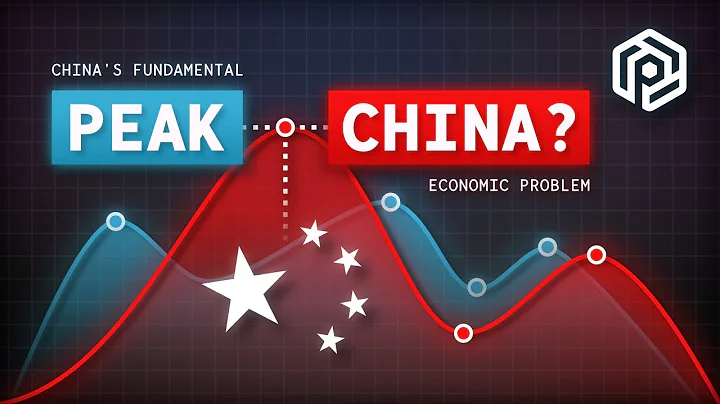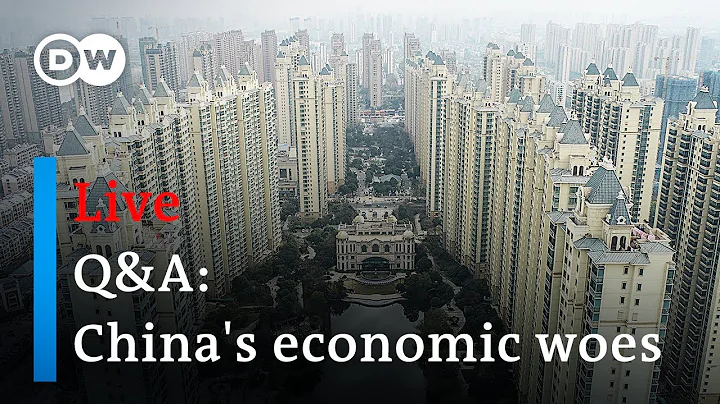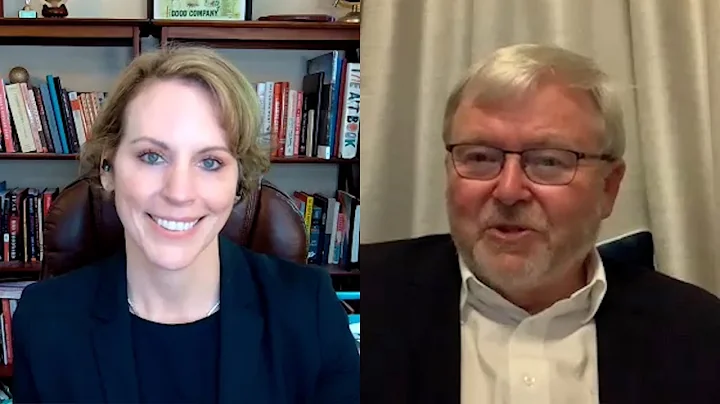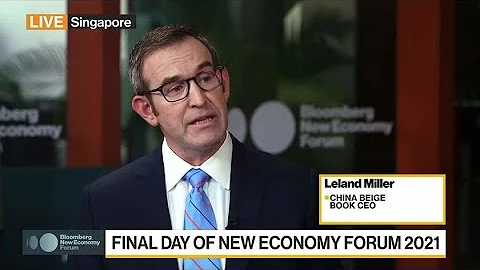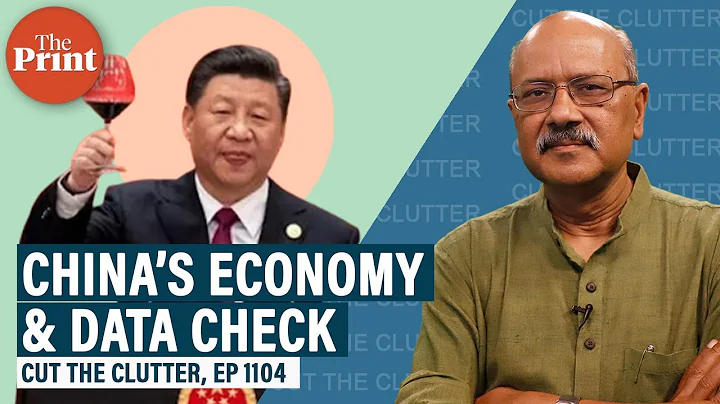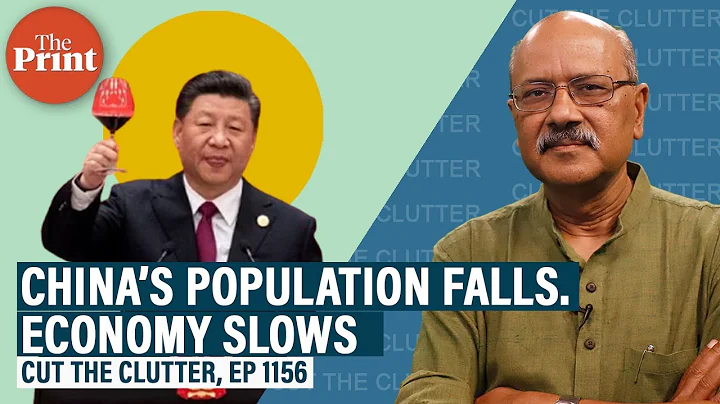When it comes to China's economy, everyone will invariably think of the same person, that is Deng Xiaoping who proposed the "reform and opening up" and "one country, two systems" policies.
People's deepest impression of Deng Xiaoping is the reform and opening up and one country, two systems, but they ignore that this great man who came through the war years also had extremely strong combat capabilities.

Regarding the question of whether Deng Xiaoping would go to war, both Liu Bocheng and Mao Zedong gave their own evaluations.
Liu Bocheng praised Deng Xiaoping as being even better than himself, while Mao Zedong recognized Deng Xiaoping's combat capabilities in one sentence. What was Deng Xiaoping's ability to lead troops in combat?

Best partner, feel at ease
"The Communist Party can win the war without me. Deng Xiaoping is better at commanding the war than I am. He is leading hundreds of thousands of troops to back me up!" This is when Liu Bocheng held talks in Xinxiang, Faced with what Wang Zhonglian, the supreme commander of the Kuomintang garrison in Xinxiang, said. The cause of the
incident was that in June 1946, Chiang Kai-shek blatantly violated the Double Ten Agreement and launched a fierce attack on our army.

For the sake of domestic liberation and stability, Liu Bocheng personally took people to Xinxiang to negotiate with Wang Zhonglian. However, he did not speculate for more than a few words. After a quarrel, Wang Zhonglian actually wanted to detain Liu Bocheng to interfere with the march of the People's Liberation Army. .
Faced with Wang Zhonglian's threat, Liu Bocheng was not afraid at all. He was very relieved about Deng Xiaoping, his golden partner, and directly said that Deng Xiaoping was better at fighting than him.
Facts have also proved that what he said is true. The Thousand Miles Leap Dabie Mountain project a year later perfectly reflects Deng Xiaoping's combat capabilities.
In 1947, in the late period of the Southwest Shandong Campaign , Chiang Kai-shek changed the direction of his attack and began to mobilize a large number of troops to gather in the southwest Shandong area with the purpose of fighting a decisive battle with Liu and Deng's field army.

In order to get rid of the passive situation, on July 30, Deng Xiaoping and Liu Bocheng asked the Central Military Commission for instructions to leap into the Dabie Mountains. This move was supported by the Central Military Commission.
html On August 27, Liu and Deng's army came to Dabie Mountain. They were unfamiliar with the place and made difficult progress in their work.
Deng Xiaoping found another way and thought of a way to learn about the situation from the mouths of the locals.
He first instructed the captain of the column to immediately contact the guerrilla captains in various places. Everyone brainstormed, quickly formulated a strategy and implemented it immediately.

From the end of August to the end of September, in more than a month, Liu and Deng's armies liberated 22 cities including Xinji, guangshan, and Wanxi, laying the foundation for victory in the war.
As the war progressed, in addition to paying attention to the fighting situation, Deng Xiaoping also keenly observed the emotions of the soldiers.
Although they have won many battles, many soldiers are not in high spirits. On the one hand, they are not confident in the war, and on the other hand, they are also dissatisfied with the results of the war.

Without further ado, from September 27th to 29th, not long after the problem was discovered, he held a three-day cadre meeting at Wenshi Temple in Zhuanqiao Township.
At the meeting, Deng Xiaoping first analyzed the severe situation and arduous tasks after entering the Dabie Mountains, and pointed out the current contradictions and problems in the army, and then proposed improvement measures. This move greatly adjusted and inspired the confidence of the soldiers. Subsequent problems were avoided in a timely manner.

So on October 12, Deng Xiaoping drafted the "Instructions of the Central Plains Bureau and the Central Plains Military Region on Letting the Masses Be Mobilized to Create the Dabie Mountains Liberated Area."
According to the instructions, each army deployed 1/3 of its troops to intensify the attack on local armed forces. By the end of the month, the situation in the Dabie Mountains was further opened up. 33 county-level governments were liberated, and the People's Liberation Army was stronger than before.

You come and go. Although the defeat is certain, Chiang Kai-shek is still struggling to death. By December, Deng Xiaoping and Liu Bocheng began to attack outside the enemy's encirclement.
There was a huge disparity in strength between the enemy and ourselves, and the task of holding on to the Dabie Mountains would only become more and more difficult. Therefore, during the division of labor on the evening of December 10, Deng Xiaoping proposed the idea of taking command in the Dabie Mountains himself, while Liu Bocheng went to fight in the Huaibei area.

At this point, Deng Xiaoping began the arduous campaign against "encirclement and suppression".
The Kuomintang army adopted a strategic deployment of separate attacks and combined attacks in the Dabie Mountains. This resulted in a very serious situation in the Dabie Mountains. Facing a powerful opponent, Deng Xiaoping considered the overall situation and suggested that the central government should not disperse the brothers' forces and hold on.
So he thought of a method of decentralized operations. The three main columns were divided into three areas to fight, which not only facilitated coordination work, but also avoided the danger of being wiped out. This method of using small forces to consume large enemy forces was very effective. The Kuomintang troops were "besieged" in the Dabie Mountains, and the war Slow progress.
Throughout the entire counter-campaign against "encirclement and suppression", Deng Xiaoping and the soldiers slept in the open air and suffered from hunger. It was with such persistence that the Kuomintang army never succeeded, and our army was able to maintain its war advantage until it won the final victory. .

He has made great contributions, but few people know
Although Deng Xiaoping often served as political commissar, secretary and other political work, Mao Zedong, like Liu Bocheng, highly recognized his military capabilities.
On September 3, 1951, Mao Zedong praised Deng Xiaoping when talking to the educator Liang Shuming: "Whether it is politics, military affairs, or essays on martial arts, he is a good hand."
By September 1971, Mao Zedong When telling others about the battle of crossing the Yangtze River, Deng Xiaoping was mentioned again: "A million-strong army crossed the river. There was a prelude, and Deng Xiaoping was mainly responsible for it."

In fact, it was not only the battle of crossing the river, but also in the Great Battle During the Huaihai Battle , Deng Xiaoping had already demonstrated his pragmatic and far-sighted military command capabilities, but few people knew about it.
On September 24, 1948, on the eve of the liberation of Jinan, in order to better plan for the establishment of New China, Su Yu proposed to the Central Military Commission a proposal to hold the Huaihai Campaign.
This suggestion quickly gained the support of Mao Zedong, so on October 22, Chen Yi and Deng Xiaoping led the midfield troops to liberate Zhengzhou.

After that, Mao Zedong changed the focus of the Huaihai Campaign and changed the strategic goal of the Huaihai Campaign from the original Zhengzhou Campaign to encircling and annihilating the entire group of the Kuomintang Commander-in-Chief Liu Zhi. This meant that the front line of the Huaihai Campaign was suddenly lengthened.
After a period of discussion, in November, the central government finally decided to consist of five people, Liu Bocheng, Chen Yi, Deng Xiaoping, Su Yu, and Tan Zhenlin, to form the General Front Committee. Among them, Deng Xiaoping was the Secretary of the General Front Committee, coordinating and commanding the two major field armies in East China and the Central Plains. , and prepared to launch the Huaihai Campaign on November 6.

The war lasted until November 22. Huang Baitao, commander of the Kuomintang's Seventh Corps, was killed. Without a leader, Huang Baitao's regiment was completely annihilated by the main force of the East China Field Army. The first phase of the Huaihai Campaign came to a successful conclusion.
Not long after, the second phase of the Huaihai Campaign began. Which enemy to attack first became the primary problem faced by the Central Military Commission and Deng Xiaoping.

After careful analysis of the Huaihai Campaign, Deng Xiaoping came to the conclusion of "attack the Huangwei Corps first."
The Huangwei Corps is Chiang Kai-shek's elite unit. If it can annihilate the opponent, it will certainly speed up the development process of the entire campaign and play an important role in liberating the Central Plains.
But the Huangwei Corps is not that easy to fight. As Chiang Kai-shek's elite direct troops, the Huangwei Corps has the characteristics of large numbers, well-equipped, and stubborn combat. Facing such a strong opponent, Deng Xiaoping was not afraid at all.

After learning about the situation of the Huang Wei Corps in detail, Deng Xiaoping said: "Although the Huang Wei Corps is an elite division under the command of Bai Chongxi , it is fierce in appearance but weak in spirit, with big ambitions and small intelligence.Even if they see the intentions of our army, they can only become a fish that swallows the hook and cannot escape our control. "
As Deng Xiaoping expected, the Huang Wei Corps is indeed the "hard backbone" of a strong foreign power.

Although the field army responsible for attacking the Huang Wei Corps had already consumed a large amount of troops in the Dabie Mountains, the current battle against the Huang Wei Corps does have Although there was great pressure, Deng Xiaoping did not change his original intention and said firmly: "Only by destroying them can we cross the Yangtze River and liberate all of China. Even if all our troops are exhausted, there are other armies that can continue to fight. The country will surely be liberated. "

At 24:00 on December 15, the Central Plains Field Army eliminated the Huang Wei Corps and captured alive the commander Huang Wei and the deputy commander Wu Shaozhou . The second phase of the Huaihai Campaign finally ended successfully.
On January 10, 1949, Du Yuming's group was captured by East China in the Chenguanzhuang area. The field army was annihilated.
At this point, the third phase of the Huaihai Campaign ended. After 66 days, the Huaihai Campaign finally came to a perfect end.

Looking closely at Deng Xiaoping's command of the Huaihai Campaign, it is not difficult to find that Deng Xiaoping focused more on overall planning. He is good at seizing opportunities and delivering fatal blows to the opponent. His "soft" fighting style does not affect the excellence and success of his command.
After the victory of the Huaihai Battle, Mao Zedong once commented on the General Front Committee headed by Deng Xiaoping: "The Battle of Huaihai is like a pot of uncooked rice, which is not fully cooked yet, but you eat it one bite at a time."
This fully recognizes Deng Xiaoping's commanding ability from the side.

The decisive victory across the Yangtze River was actually as early as the early stage of the Huaihai Campaign. , Chiang Kai-shek had already abandoned the Huaihe River defense line. He withdrew his troops to the south of the Yangtze River, trying to retain his rule by relying on the dangerous conditions of the Yangtze River and its unique geographical location.
Mao Zedong was aware of Chiang Kai-shek's ambition to make a comeback, and the Communist Party had already In order to clear everything for the founding of New China, the Central Military Commission of the Communist Party of China decided to launch a cross-river campaign in the lower reaches of the Yangtze River. On February 11, 1949, the Central Military Commission decided after study that the general front formed during the Huaihai Campaign would still be used for the cross-river campaign. Committee, "The General Front Committee still exercises the authority to lead military and combat operations. "
This shows that Deng Xiaoping will still play a vital commanding role in the Battle of Crossing the River.

In order to fulfill his mission and ensure the victory of the Battle of Crossing the River, on March 22, Deng Xiaoping held a memorial ceremony for Sun Jia, south of Bengbu Weizi held consecutive meetings of the General Front Committee and the East China Bureau to further determine the problems encountered during the southern crossing. On the 29th, when the meeting was about to end, Deng Xiaoping personally wrote the "Beijing-Shanghai". The battle plan "Implementation Outline of the Beijing-Shanghai-Hangzhou Campaign".

The facts once again verified Deng Xiaoping's outstanding military leadership. The "Implementation Outline of the Beijing-Shanghai-Hangzhou Campaign" drafted by him played a huge guiding role in the victory of the subsequent cross-river battle.
The time came to mid-April, and the deadline for the peace talks between the Kuomintang and the Communist Party was immediately on the 20th. Although the peace talks had made initial progress, the central government still made two preparations just in case.

At that time, the Central Military Commission proposed the 22nd. On three dates, the 25th and the 29th, the General Front Committee was asked to decide when to launch a campaign if the negotiations broke down.
So after a comprehensive analysis of the enemy situation, water conditions, climate and other factors, Deng Xiaoping and Chen Yi proposed. On April 20, 1949, the Kuomintang refused to sign the "Domestic Peace Agreement", and the peace talks between the Kuomintang and the Communist Party completely collapsed. , Deng Xiaoping, as the General Front Committee, was the first to issue the order to cross the river.
Under his command, on the 23rd, the artillery of the East Group occupied the Nanjing National Government ; the West Group controlled more than 200 miles of the south bank of the Yangtze River. The landing site was 10 to 20 miles deep. By April 25, the first phase of the cross-river battle was declared successful.

Subsequently, the Kuomintang changed its strategy and prepared to reorganize its defenses along the Zhejiang-Jiangxi line in preparation for its subsequent escape south.
Secretary Deng Xiaoping noticed the enemy's intentions and adjusted the strategic deployment in time. Liu Bocheng proposed that the Second Field Army assist the Third Field Army to form a cross movement to Nanjing to completely crush the enemy's defense on the Zhejiang-Jiangxi line. This move immediately received Deng Xiaoping's support. agree.

So in early May, the Kuomintang was completely defeated on the Zhejiang-Jiangxi line. Tang Enbo and the connection with Bai Chongxi's two groups were also cut off. The second phase of the cross-river battle came to an end.
At this point in the war, Chiang Kai-shek was still resisting, and the remaining 200,000 main forces of the Tang Enbo Group retreated to the vicinity of Shanghai.
Under Chiang Kai-shek's order, the Communist Party of China hoarded a large amount of combat supplies and steel and concrete in an attempt to continue to resist the Communist Party's attack.

How to correctly liberate Shanghai has become another difficult problem before Deng Xiaoping.
html On May 2, after listening to everyone's report, Deng Xiaoping proposed not to attack the urban area of Shanghai to reduce the damage to the city, but also to cut off the enemy's escape routes to avoid stretching the front.Therefore, the first phase of the war started in the Wusong and Gaoqiao areas. After 10 days of fierce fighting, our army successfully broke through the enemy's Songhu peripheral defense system, and the enemy was forced to walk out of the urban defense.

Waiting until the second stage of the war, Deng Xiaoping believed that should march from south to north, attack the urban area first, and then wipe out all the enemy forces.
This plan will be implemented on the night of May 23.
After fierce battles, Shanghai was finally liberated on May 27, and soon after on June 2, Chongming Island was also liberated. At this point, the battle across the river was a complete victory.
The Battle of Huaihai and the Battle of Crossing the Yangtze River were two important turning points in the victory of our revolution. In these two crucial battles, Mao Zedong handed over the main command power to Deng Xiaoping, which is enough to show Mao Zedong's recognition of Deng Xiaoping's military capabilities.

Conclusion
Throughout the history of our country’s liberation, there have always been heroes who sacrificed themselves for the country and worked hard to save China.
We know that their greatness is based on the current peaceful and contented life; but for the predecessors in the past, when they shed blood and sacrificed, they did not know what their future was. This is exactly the case, and their efforts are more worthwhile. We admire.

Regarding Deng Gong, we should not only remember him as the chief architect of our reform and opening up, but we should also realize that in those years of bloodshed, sacrifice and hardship, he was not very famous, but he was always brave and resourceful, and made great achievements. Many victories were won and great contributions were made to the liberation of the motherland.
References:
「1」Su Tairen. Complete Records of Deng Xiaoping’s Life [M]. Beijing. Central Literature Publishing House. 2004.236-238
「2」 Song Yijun; Wang Chao. Deng Xiaoping: Commanding a Million to Cross the River [J]. Party History Blog Cai (Documentary), 2014 (12): 9-14
「3」Guo Hongwei; He Shangfeng. Deng Xiaoping and Liu Bocheng - a "golden partner" in the war years [J]. Literature and History Chunqiu, 2006: 34-35
「4」Kong Xin. What role did Deng Xiaoping play in the Huaihai Campaign? [J]. Deng Xiaoping Research, 2018: 114-118
「5」Compiled by the Organization Department of Xinyang Municipal Committee of the Communist Party of China. Review of the Dabie Mountain Revolution [[M]. Beijing. Chinese History Press, 2013:126-128



